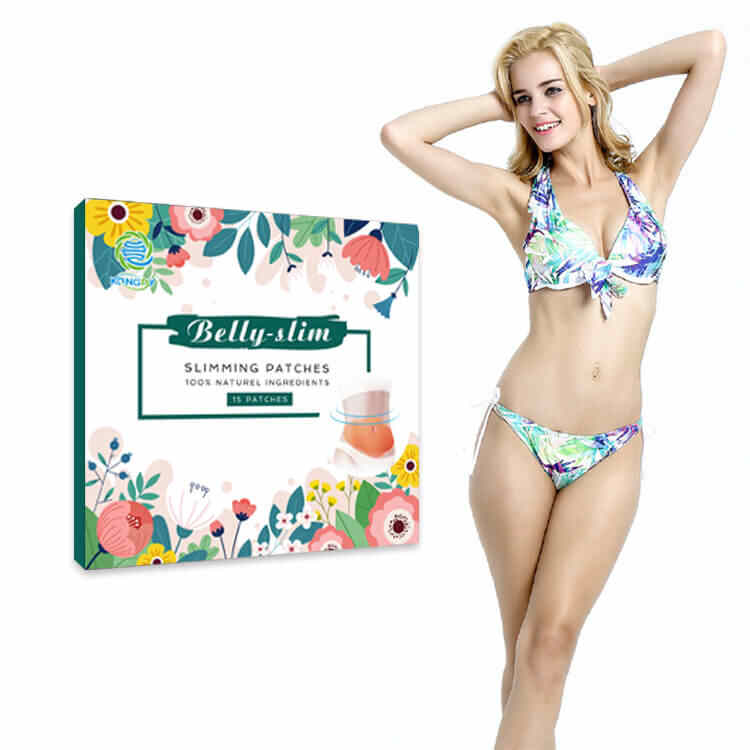What Certifications Should a Reliable Transdermal Slimming Patches Manufacturer Have?
The global demand for slimming and wellness products continues to rise, and transdermal slimming patches are gaining significant attention due to their convenience, targeted delivery, and effectiveness. However, not all manufacturers in this market are equally reliable. For businesses looking to launch Custom transdermal slimming patches or expand their line with Private Label transdermal slimming patches, choosing the right transdermal slimming patches Manufacturer is critical.
One of the most effective ways to identify a trustworthy partner is by evaluating their certifications. Certifications reflect compliance with international standards of safety, quality, and ethical manufacturing. Whether you are dealing with a transdermal slimming patches OEM provider or a transdermal slimming patches Supplier, certifications guarantee that your products are produced under stringent quality controls, which builds trust with your customers and protects your brand reputation.
This article explores the key certifications you should look for when selecting a transdermal slimming patches Manufacturer and why they matter for your business success.

1. Why Certifications Matter in Transdermal Slimming Patches Manufacturing
Certifications are not just paperwork—they are proof of a manufacturer’s commitment to safe, consistent, and high-quality production. Working with a certified transdermal slimming patches Manufacturer helps you:
Ensure Product Safety: Certifications verify that materials and processes meet global safety standards.
Build Consumer Trust: Customers are more likely to buy from brands that promote quality and compliance.
Gain Market Access: Certain certifications are mandatory for exporting to specific regions.
Reduce Risk: Certifications minimize the likelihood of regulatory issues, recalls, or consumer complaints.
For businesses considering Custom transdermal slimming patches or Private Label transdermal slimming patches, partnering with certified manufacturers ensures that your brand aligns with international standards.
2. Essential Certifications for a Reliable Transdermal Slimming Patches Manufacturer
When assessing potential partners, look for these crucial certifications:
a) Good Manufacturing Practice (GMP)
Why it matters: GMP certification ensures that products are consistently manufactured under strict quality control guidelines.
Benefits:
Guarantees hygiene, safety, and consistency.
Reduces contamination and defect risks.
Essential for both transdermal slimming patches OEM and Private Label transdermal slimming patches projects.
b) ISO 9001 (Quality Management Systems)
Why it matters: This international standard demonstrates that a manufacturer follows structured quality management processes.
Benefits:
Assures consistent quality in every batch.
Improves efficiency and reduces waste.
Builds confidence in long-term partnerships with a transdermal slimming patches Supplier.
c) ISO 13485 (Medical Devices Quality Management)
Why it matters: Since transdermal patches are often categorized under medical or quasi-medical products, ISO 13485 is critical.
Benefits:
Demonstrates compliance with medical device regulations.
Ensures the manufacturer can produce safe, effective slimming patches.
Important for entering markets like the EU and North America.
d) CE Marking (European Union)
Why it matters: A CE mark is mandatory for selling slimming patches in the European market.
Benefits:
Confirms the product meets EU safety and performance requirements.
Increases consumer trust and credibility.
Opens doors for Custom transdermal slimming patches in Europe.
e) FDA Registration (United States)
Why it matters: To enter the U.S. market, FDA registration is often required.
Benefits:
Signals compliance with American health and safety regulations.
Ensures transparency in production and labeling.
Critical for building partnerships with U.S.-based distributors.
f) ISO 22716 (Cosmetics GMP)
Why it matters: Slimming patches may also be regulated under cosmetic standards in certain markets.
Benefits:
Ensures compliance with cosmetic safety and labeling rules.
Provides assurance for Private Label transdermal slimming patches marketed as beauty or wellness products.
g) Halal and Vegan Certifications (Optional but Valuable)
Why it matters: With growing demand for ethical products, Halal and vegan certifications can set your brand apart.
Benefits:
Expands your consumer base.
Positions your Custom transdermal slimming patches as inclusive and ethical.
3. Why Work Only with Certified Transdermal Slimming Patches OEM Providers?
Choosing a certified transdermal slimming patches OEM provider is not just about compliance—it’s about business growth. Here’s why:
Market Expansion: Certifications like CE or FDA allow you to enter lucrative global markets.
Brand Credibility: Customers perceive certified products as higher quality.
Lower Risk: Certification reduces chances of product recalls or legal penalties.
Smooth Customization: Certified manufacturers are better equipped to handle Custom transdermal slimming patches tailored to your business needs.
4. Risks of Working with Non-Certified Manufacturers
Not all transdermal slimming patches Suppliers adhere to international standards. Choosing the wrong partner could lead to:
Product Quality Issues: Poor adhesive, inconsistent dosage, or unsafe ingredients.
Regulatory Problems: Inability to enter certain markets due to lack of compliance.
Brand Damage: Negative reviews and recalls harm your reputation.
Financial Loss: Failed batches, fines, or wasted inventory.
This highlights why certifications should be a non-negotiable requirement when evaluating a transdermal slimming patches Manufacturer.
5. How Certifications Impact Custom and Private Label Solutions
When launching Private Label transdermal slimming patches, certifications prove that your products are safe for your customers, regardless of your marketing claims. Similarly, if you are developing Custom transdermal slimming patches, certifications ensure that unique formulations and designs meet regulatory standards.
A certified transdermal slimming patches OEM partner can:
Develop formulations compliant with medical and cosmetic laws.
Ensure your brand’s packaging and labeling follow local regulations.
Guarantee that your products stand up to consumer scrutiny.
Conclusion
Selecting the right transdermal slimming patches Manufacturer goes beyond price and production capacity—it’s about ensuring safety, quality, and compliance through recognized certifications. Whether you’re looking for Custom transdermal slimming patches, Private Label transdermal slimming patches, or large-scale supply from a transdermal slimming patches Supplier, certifications like GMP, ISO 13485, CE, and FDA registration should guide your decision.
By partnering with a certified transdermal slimming patches OEM, you secure not only reliable products but also a strong foundation for global market success.
Related Questions and Answers
Q1: Why is GMP certification so important in a transdermal slimming patches Manufacturer?
A1: GMP ensures consistent quality, safety, and hygiene throughout the manufacturing process, reducing risks of contamination or defects.
Q2: Can I sell my transdermal slimming patches in Europe without CE certification?
A2: No, CE marking is mandatory for entering the European market, as it demonstrates compliance with EU safety standards.
Q3: Do all transdermal slimming patches Suppliers need FDA approval?
A3: Not all, but if you want to sell in the U.S., FDA registration or compliance is necessary to meet regulatory standards.
Q4: What is the difference between ISO 9001 and ISO 13485 for slimming patches?
A4: ISO 9001 covers general quality management, while ISO 13485 is specific to medical device production, ensuring safety and regulatory compliance.
Q5: How do certifications benefit Private Label transdermal slimming patches?
A5: Certifications ensure that even branded products under your label meet international standards, protecting your reputation and customer trust.






